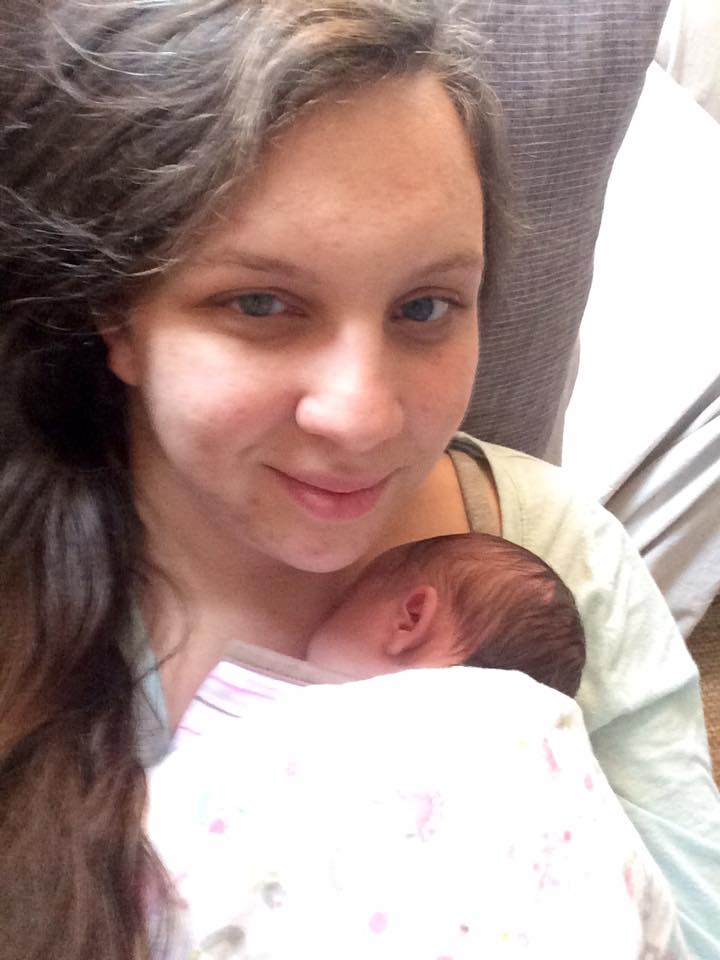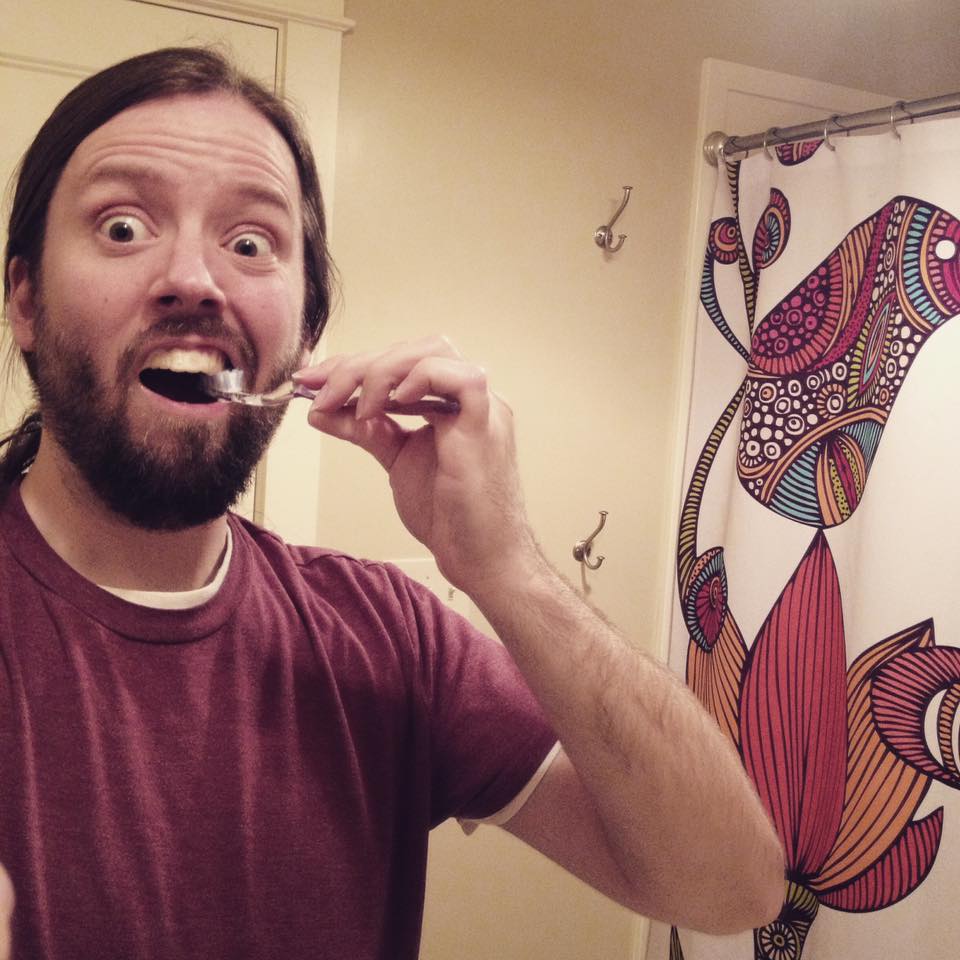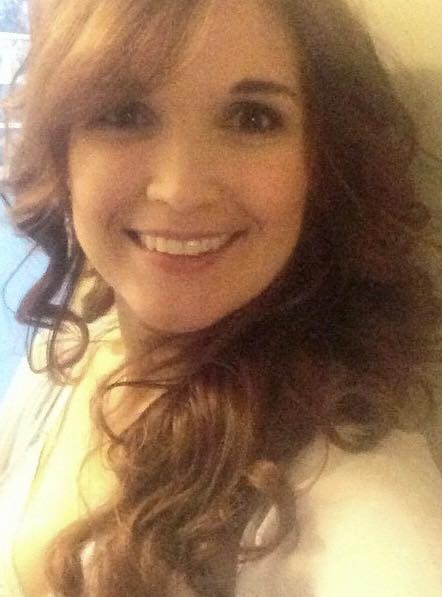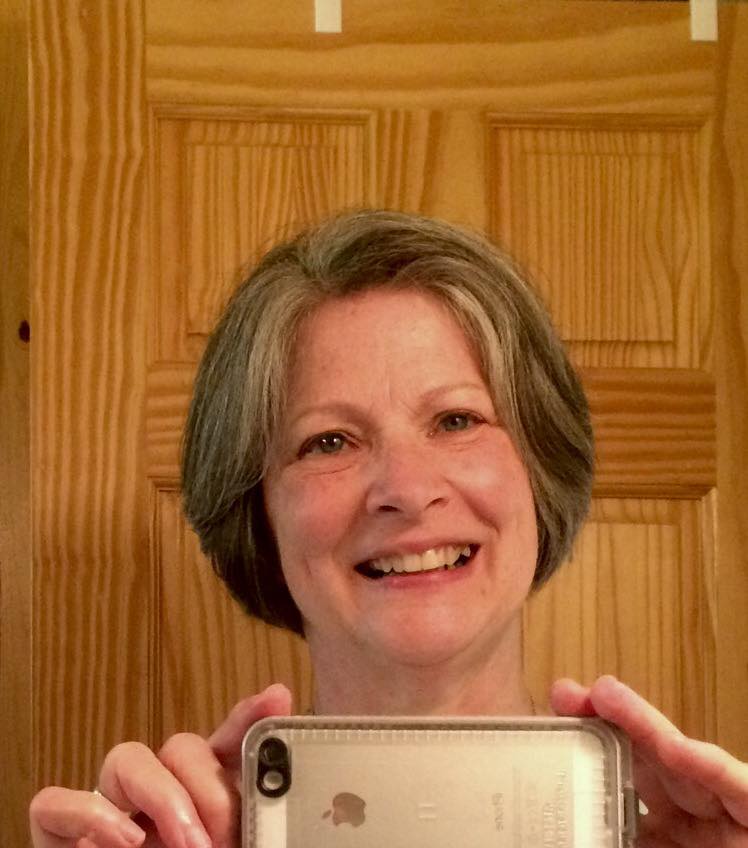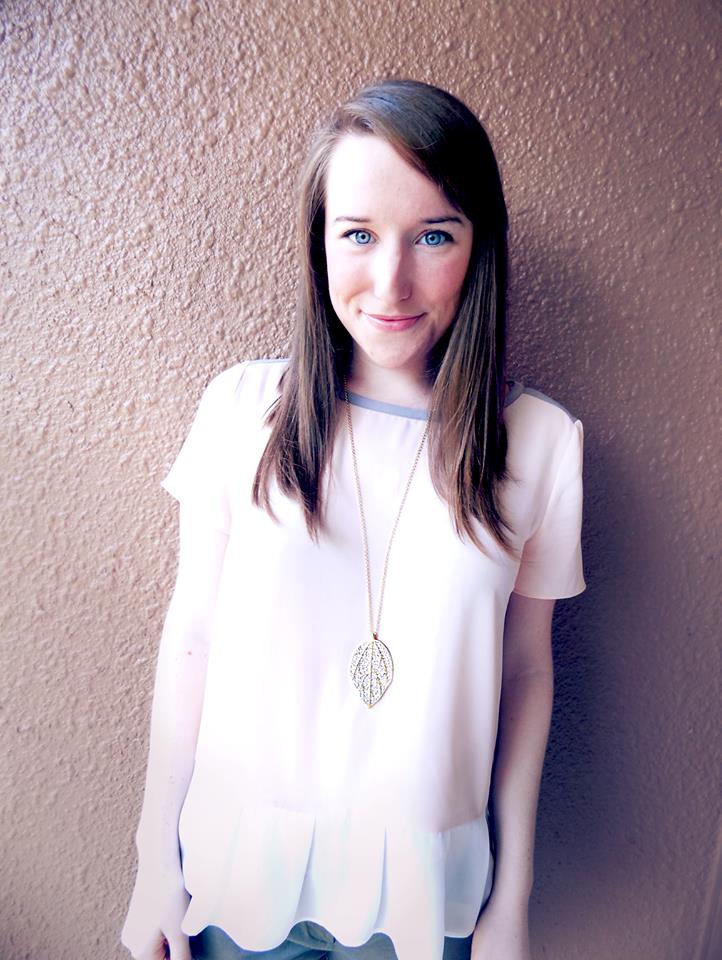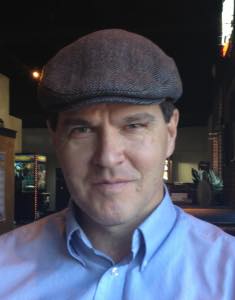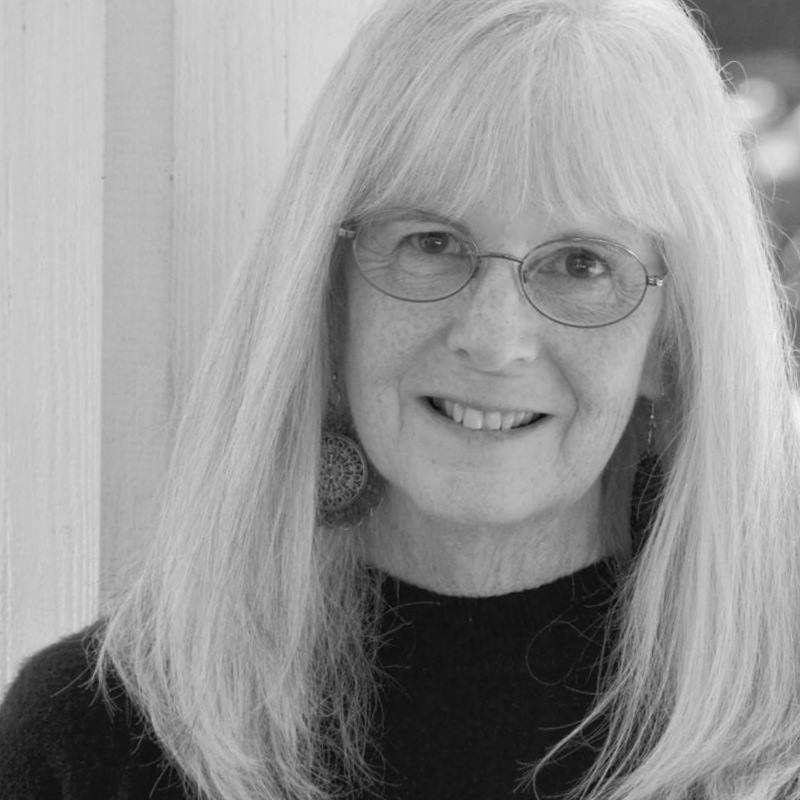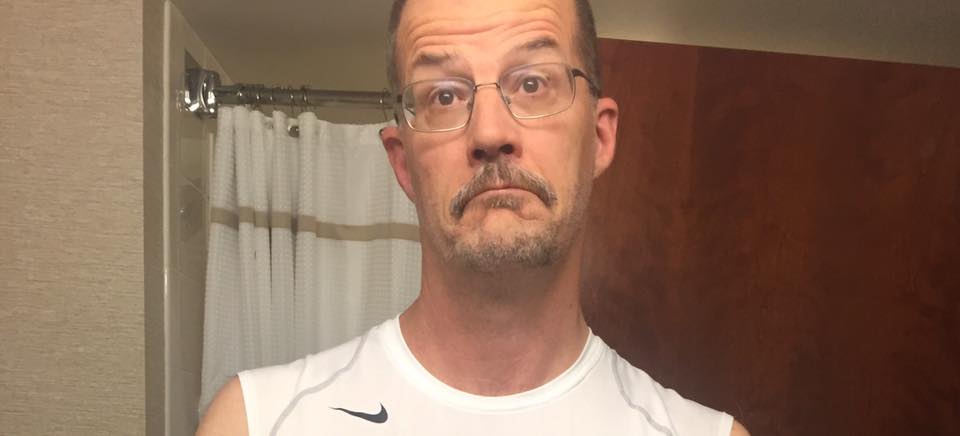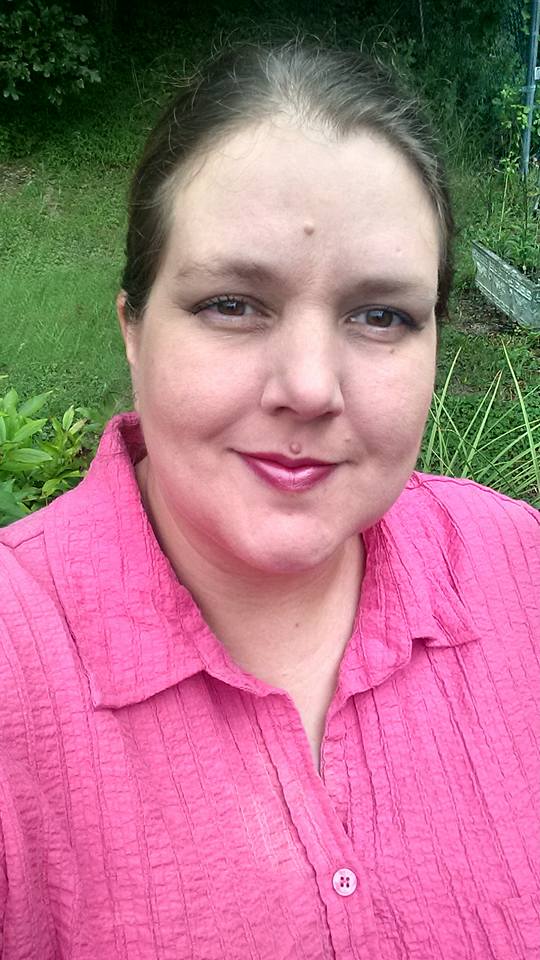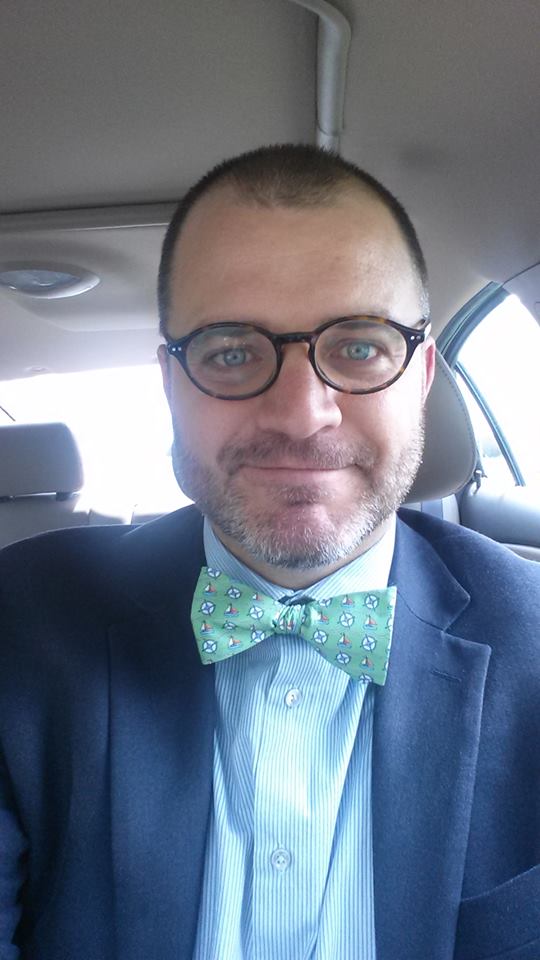Ugly for Jesus : Thoughts on Evangelicalism and Beauty Bias
A couple of years ago, a funny YouTube video made the social media rounds, addressing a condition known as B.R.F. It's an acronym that I probably shouldn't unpack in this blog, but it basically means that some of us have faces that look angry when we are happily resting.
That video hit at just the right time for me, because I'm 44 this year, and getting older is doing something funky to my expressions. So many times I look in the mirror lately and think, “Wow. I don’t feel like that face looks.”
So I stand there staring at my reflection, trying to figure out what muscles I used to use to just look normal. I know that's a goofy thing to do, but I also know how people treat faces in this ol' world. Christians will tell you all day long that appearance doesn't matter, and that might be true at the heart level. But in terms of what actually moves human beings -- beauty is a mighty force.
I've been in and around Christian ministry for over 20 years now. When I first noticed evangelical leaders making choices for leadership and influence based on physical attractiveness, I was shocked.
No, "shocked" is too light of a word. I was horrified.
I will never forget some of those first conversations about spiritual multiplication in which leaders of leaders were coached to consider appearance while choosing who should be "up front."
The first summer I attended a beach mission project and was encouraged to stop wearing a big t-shirt over my bathing suit (so that I wouldn't look so conservative and stuffy), I wanted to cry. "It's bad enough that all of you are wearing one-piece bathing suits," one of my leaders said. "You guys need to at least try to look relevant."
As time has passed, I have watched Christian industries of all sorts chase down men and women who possess some sort of beauty gimmick. Former pageant queens. Former athletes with gorgeous bodies. Publishers and record labels snag those folks like prizes, giddy that someone who loves Jesus is also physically attractive.
I used to think that Christian industry was trying to help pagans find the gospel -- wrapping Jesus in a thick layer of sexy to help the medicine go down. Lately, I'm more inclined to think that it's not really about pagans in the end. I'm starting to think it's more about selling stuff to existing believers who like to have superstars make them feel less nerdy about faith.
I don't know.
But heck, Amish Christian romance covers. Can we talk about those? Who are these women? And why do they have Kim Kardashian lips? I can't deal.
But before I really get into how beauty is handled in the Christian community, I want to take a look at what we are told by the world.
While researching this topic, I read through several scientific studies on beauty bias, but I’ve decided not to include any of those findings here. I just don't need formal studies to convince you of my point. You already see beauty bias happening every day of your life, which makes my work as a writer easy.
What I want to do instead is reference some non-scientific mush sites that demonstrate how our culture tends to connect face shapes and personality types. Then I'll get deeper into Jesus world.
WHAT THE WORLD SAYS #1:
“The Seven Soul Types: What Do They Look Like?”
Okay, first I'm including a link to an outright claim that your personality type is determined by your face shape.
(Hurry! Hurry! Check it out and see if you are living out your face-destiny! (Sarcasm font.))
SOURCE:
It looks so official, doesn't it? I'm the artisan. Somebody give me some canvas and leather, and I'll make you some shoes or something.
Or let's look at the one in the middle row on the right. The "Server." Supposedly, the Server is supposed to work like this:
“Servers are gentle, genial souls. Facially, they often characterised by a rounded head, sometimes potato-shaped, with soft, sagging features and smallish, tired-looking eyes. Rounded shoulders are also typical.
The Server’s baseline expression varies between one of sorrowful pity (when they focus on the common woes of life, like Mother Teresa) and sweet, innocent cheerfulness (when they focus on serving the common good, like the Dalai Lama). But either way, there is a basic vibe of harmlessness.
Typical traits: accommodating, caring, modest, dedicated, unassuming, homely, downtrodden, melancholic.”
Now we get two examples. Queen Elizabeth and Desmond Tutu.
I'm sorry to break this discovery to all you Desmond Tutu fans out there, but the guy had no choice. He was born with SERVER FACE?
Uhhh... anyway... moving right along...
WHAT THE WORLD SAYS #2:
Thoughts from a face shape EXPERT. (Do not doubt the expert of the face, guys. And stop snickering.)
"'Your face is saying something,' expert Jean Haner, author of The Wisdom Of Your Face, told Cosmopolitan. 'You're born with with features you have for a reason. The face is a map of your personality as well as your whole life.'" SOURCE:
The article continues:
“London-born TV personality Kelly Osbourne, 30, has a triangle-shaped face. This means the face is narrower at the forehead but wide at the jawline.
Men and women with these faces tend to be artistic, creative and sensitive but also fiery.
'This shape means you usually want to be in charge,' said Ms Haner told Cosmopolitan. 'And the more narrow your forehead is at toward the top of the person's head, the more they have to be in control.'
She said people with triangle face shapes are usually 'very successful'.”
There it is. Kelly Osbourne. She's going to be a life coach soon, mentoring the triangle faces of humanity in global domination. (I really hate to discourage all of you with oval and square faces, but there it is. Documented. Might as well give up. Hahah.)
WHAT THE WORLD SAYS #3:
Disney
Don't get all huffy. I'm not going to beat up Mickey Mouse. I like a lot of what Disney does, but I hate this one part of their work.
For YEARS Disney has been programming kids to expect goodness to look one way and evil to look another. Take a minute to compare the basic face shapes between heroines and villains here:
In the past few years, some of this has changed a little bit here and there with Disney. But for the most part, these are still the norms. Villains are still ugly. Heroines are still gorgeous.
WHAT THE WORLD SAYS #4.
Snidely Whiplash.
Confession. I might just be including this picture because it cracks me up. But still. Snidely Whiplash! Evil blue face. Dudley Do-Right, hyperbolic righteous Canadian manliness.
I better stop writing about this. I'm going to start making jokes I'll feel bad about later tonight. If you know me personally, message me, and we can get all into this one.
WHAT THE WORLD SAYS #5 :
SHREK
I’m addressing Shrek specifically because it was such an important movie-- an honest-to-goodness example of a deconstructed fairy tale.
Deconstructionism is a literary school (though deconstructionists would deny that it’s a formal school because they are stubborn like that) that rips apart societal conventions with glee.
If you’ve seen Shrek, you know how the princess turns uglier for love instead of prettier, and then everybody in the audience is all “Whoa!” because that never happens in movies. Then we feel all insightful, and enlightened, and compassionate, because we realize we like ugly better when it's good instead of evil.
Just know that the only reason this movie works is because it's pointing out the stereotype before breaking it.
WHAT THE WORLD SAYS #6:
Phrenology
Y’all, phrenology cracks me up. It’s a Victorian way of making assumptions about a person's character and intellect based on skull shape. Folks were all about it in the 1800’s, but now we consider it quack science... weeeeellllll, except for the fact that a lot of us have retained some of the underlying principles of phrenology subconsciously.
Get a load of these whack diagrams:
Hahahahha. Ladies on Christian Mingle. Do NOT DATE THE DANGER MAN!
(Christian Mingle Conversation:)
DangerMan7564: "Hey baby, want to talk about Two Corinthians?"
InnocentMaidenWonkaWonka: "Oh my! I just Googled you and saw the back side of your head! You're Danger Man! I can't talk to you!" (Block Profile! Block Profile!)
WHAT THE WORLD SAYS #7:
Jungian Archetypes
Carl Jung was a disciple of Sigmund Freud (yeah, the perv Freud.) I like Jung loads better than Freud, though both were a little weird, in my book.
One of the helpful things Jung created was a list of archetypes that appear and reappear in literature (and life). And because Jung had a huge impact on the work of Joseph Campbell who developed a story cycle that has influenced just about every movie you've ever seen, and a ton of books you've read (including Star Wars), the average American has been influenced to believe that people fall into some basic categories.
Because most of us watch this assumption play out in movies, facial stereotypes come with the territory. And thanks to the millennia-long influence of Greek thought organizers (like Aristotle), you and I are automatically comfortable putting people in categories.
These charts (below) aren’t pure Jung, but they will still give you a loose feeling for what I’m talking. about. Especially look through the second chart here and see what visual similarities appear. Could you cast the maidens as sages? Why or why not?
https://brandmanagerguide.com/2014/10/02/archetypes-in-branding/
http://www.chartgeek.com/jungian-archetypes-2/
So <she says, dusting off her hands> that's a smattering of what the secular world gives us -- but what about Christianity? What does faith provide instead?
In terms of content, Christians are repeatedly told stuff like this:
You are worthy just like you are.
You are beautiful just like you are.
God sees you, even though you aren’t conventional.
You are the beloved.
Great message, right? Warm fuzzies, all?
Yet does this language actually line up with how the industry of faith works?
Does it line up with the women we see "solid male believers" deciding to date?
Does it line up with the women we see promoted at faith conferences?
Does it line up with the women that big music labels choose for their videos?
And men, too? What about guys? Square jaws? Height? Broad shoulders?
Confession #2. This one is embarrassing. My WORST Seinfeld crush (by far) was George Costanza. Be that what it may, I seriously doubt I'm going to see a "George" leading a manly Jesus rally in a football stadium any time soon.
For the most part, the promoted Christian women are young, sexy, and beautiful. And though beauty bias might be a little easier on guys, for the most part, Christianity wants its main men to look like superheroes.
Let's get specific. Ready to go there?
Below is a list of top Twitter followers for evangelical females. (It's from a few years back.)
Okay, ignore Joyce Meyer. She’s popular because she promises a bunch of cray-cray stuff that naive people absorb without cross-checking Scripture. If you follow her, STOP DOING THAT. SERIOUSLY, STOP. STOP. STOP. <Can you feel me smacking your hand off the computer mouse with a plastic fly swatter?> HER THEOLOGY IS BAD AND DANGEROUS. Leave it alone.
But skipping Meyer, look at this list of some top influential Christian women on Twitter:
(Source: http://www.patheos.com/blogs/adrianwarnock/2013/02/top-20-influential-christian-women-on-twitter/)
Now look at pictures of some of these women. What do you see?
Beautiful, right? Every single one of them.
And now look at the top-ranking female CCM singers for 2015. What do you notice? (A lot of guys were in the top 15, so the numbers should really run 1, 2, 3 if we are counting only women. I didn't skip any girls.)
#4 Lauren Daigle
#6 Francesca Battistelli
#16 Kari Jobe
http://www.billboard.com/charts/year-end/2015/top-christian-artists
Woah, right?
Now hear me. I don’t mind that these women are talented AND beautiful. Lauren Daigle is one of my favorite singers ever, for example. As far as I can tell, she's as sincere as they get.
But while we allow these beautiful women to be gifted and sincere, are we also allowing others to be only gifted and sincere? Do you see what’s missing in the lineup? What is it that we almost never see promoted in modern Christian industry?
Remember that moment? The world was stunned by Susan Boyle, because her beauty was unconventional, and yet we were forced to see that she was glorious. (And P.S., I think Boyle is as cute as can be, but I'm talking about society's standards here. The magazine cover standard. The centerfold. The Victoria's Secret model. And while you and I might have the ability to see beauty in all faces, most of the world - sadly - does not.)
Why is this, church? Why did the realization that the Susan Boyles of the world ARE beautiful have to come from a secular show? Why weren't the sons and daughters of God already saying this more clearly than anyone?
And for goodness sakes, why are we jumping up and down when a former Miss Hotness U.S.A. signs a new book contract or record label for Jesus while most of us running around are just regular people with regular faces? What are we really saying if that is a big deal to us?
This post is already too long (sorry! sorry!), but I want to close with two quick things. First, I want to give you a quote from a writer friend of mine. She has been a part of evangelical Christianity for a long time, and when she found out I was writing this article, here's what she said:
“I was in the audience for a Bible study series being filmed by Lifeway. The Bible teacher was a celebrity of sorts in the genre of Christian speakers. After we were seated, everyone who had white hair, was dressed shabbily, or who was fat or had an unflattering camera presence was asked to sit toward the back for most of the taping. I guess an audience of beautiful people sells more product.”
How sad! How sad that we tell people that their external attributes don’t define them while organizing the Christian industry around the values of our world.
And nearly every female I know feels this reality intensely.
As a female Christian writer, I struggle with pressure to conform to the world's standards, and I'm not just imagining it. Last year an influential figure in the Christian recording industry told a male friend of his, "The only reason people read Rebecca is because she's hot."
When I heard about this, I wanted to puke. First off, the comment was untrue... I'm 100% not hot in real life... he had just seen flattering, carefully-chosen pictures of me online. (Practicing my not-B.R.F.) So, my first emotion upon hearing this was to feel ashamed and deceptive, and I immediately took all my profile pictures down on Facebook.
Then I wanted to puke because I realized that when a man talks to another man... two male members of the successful Christian industry machine... in the privacy of that dialogue, I'm either hot or I'm not hot. They will discuss it.
Some part of my value in Christian industry comes down to that. Especially now, in a world where Christian speakers build "brands" that have to be marketed, my allure is (at least to some people) just as important as anything else I have to contribute.
Women get so much flack about dressing provocatively, but this is why we struggle with all that, guys. It's not just because the world "out there" values our sexuality. It's because the evangelical machine also tends to cater to it. In Christian communities, in Christian industry, in Christian dating relationships, in Christian everything... we are still assessed by our appearance.
We've seen Christian leaders defer to gorgeous women so long, we now expect it. We used to believe all that stuff about burying our hearts so deeply in Jesus a man of God would find us there, but for the most part, it seems like the men of God are too busy making out in their apartments over the weekend with twenty-something 9's and 10's who post gym butt-pics on Instagram. We've been to the conferences and noticed that Every. Single. Woman. Speaking. looks like a Barbie.
It often feels like there's no safe place for us to live out of our true value... at least not in terms of human safety. And even when the bias is subtle, it is still powerful.
As much as I want beauty not to matter for me and for every other woman contributing to evangelicalism, at present, it does impact how we are received. It impacts the mechanics of the business side of Christianity. It affects which women are called back for the interview. It affects who gets the book deal and who gets invited to speak.
And all of this impacts the greater message Christians in America are hearing -- which is a greater communal tragedy than any sort of disparity that any individual believer faces.
So I want to challenge us all, then, to do the following.
1. Realize that beauty bias exists in evangelicalism. Talk with people on your church staff teams or in your particular industry (music, publishing, evangelistic planning, conference planning) about it. Put the facts on the table and decide whether what you are telling people aligns with what you are showing them. If there’s a disparity, fix it.
2. In the quiet of your own heart, take time to realize that you have been programmed all your life to make immediate judgments based on how someone’s face looks. Let this recognition urge you to lean the opposite way. Take extra time to look behind your first impression. Really listen.
And bonus: if you are a dude, stop dating based primarily on this. Seriously. Grow up. I am so tired of seeingamazing single Christian women waiting for men who will never chase them, because those men are too busy chasing their high school fantasies. Gross.
3. Recognize that everyone you interact with has been living in a world with these biases. The people you meet have been conditioned to believe things about themselves, based on their faces, for decades. What impact might being told, “You are so sweet,” have on a woman over twenty years? What might being overlooked because your face is fat, or your nose is hooked, or because your eyes are buggy have after a lifetime?
So even when personality and face shape stereotypes do seem to line up, think about why. And give people a chance to emerge that they might not even realize they need.
4. If you are strongly drawn to beauty, intentionally make a few choices about who you read, listen to, study based on content instead of appearance. Not everyone who is Western-beautiful is a bad thinker or teacher, of course. I love a lot of performers and writers who are technically gorgeous. But let’s spend time intentionally seeking out some people who don’t meet modern consumer beauty standards to find out what they have to say. Imagine the wisdom of having to work all your life against beauty bias. What depth might come out of a life lived like that? What are you missing?
5. Think about how you’ve thought about yourself in light of all this. What have you assumed you were worth? What have you assumed you could or could not do? What advantages do you need to stop depending on? What limitations do you need to resist?
So what if you're ugly for Jesus? So what if I am? I say, that's beautiful, too. I say let's learn to see better, and learn to listen better, and learn to revere the image of God in all seven billion ways it shows up on planet Earth.
Finally, I’m going to close with some pictures of my beautiful friends. When I told them I was writing this piece, they volunteered to help me out with some selfies.
I have the best friends in the world, you know. They have made me the writer I am, and they continue to do that. And so here they are, not behind the scenes this time.
They wanted to show you the faces of strangers, so that you could practice your seeing. When you look at each of these people, what do you assume? Who would you trust? Who wouldn’t you want to speak with at a party? Why?
If there are any you'd overlook, you'd be missing out.






























